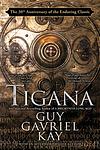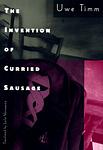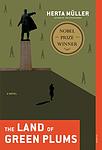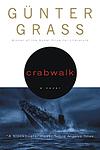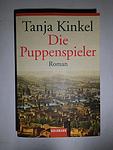The Greatest Canadian, German "Historical fiction, Fiction" Books Since 1990
Click to learn how this list is calculated.
This list represents a comprehensive and trusted collection of the greatest books. Developed through a specialized algorithm, it brings together 300 'best of' book lists to form a definitive guide to the world's most acclaimed books. For those interested in how these books are chosen, additional details can be found on the rankings page.
Genres
Historical fiction is a genre of literature that combines fictional stories with real historical events, settings, and characters. These books often take place in a specific time period and are based on research and factual information, but also include imaginative elements to create a compelling narrative. Historical fiction allows readers to experience the past in a unique and engaging way, while also providing insight into the social, cultural, and political issues of the time.
Countries
Date Range
Reading Statistics
Click the button below to see how many of these books you've read!
Download
If you're interested in downloading this list as a CSV file for use in a spreadsheet application, you can easily do so by clicking the button below. Please note that to ensure a manageable file size and faster download, the CSV will include details for only the first 500 books.
Download-
1. The English Patient by Michael Ondaatje
"The English Patient" is a story of four diverse individuals brought together at an Italian villa during the final days of World War II. The narrative revolves around a severely burned man who can't remember his name or past, a young Canadian nurse who tends to him, a Sikh British Army sapper, and a Canadian thief. As they navigate their own traumas and losses, the past of the mysterious patient slowly unravels, revealing a tale of love, identity, and betrayal.
-
2. The Book Thief by Markus Zusak
Set in Nazi Germany during World War II, the novel follows the story of a young girl who finds solace in stealing books and sharing them with others. In the midst of the horrors of war, she forms a bond with a Jewish man her foster parents are hiding in their basement. The story is narrated by Death, offering a unique perspective on the atrocities and small acts of kindness during this period. The girl's love for books becomes a metaphor for resistance against the oppressive regime.
-
3. The Reader by Bernhard Schlink
"The Reader" is a poignant narrative centered around a young German boy's complex relationship with an older woman, who later turns out to be a former Auschwitz guard. Their relationship begins with her teaching him to read, but takes a drastic turn when she disappears, only to reemerge on trial for war crimes. The novel explores themes of guilt, shame, and redemption, as the boy, now a law student, grapples with his feelings for a woman he once loved, but whose past actions he cannot reconcile with.
-
4. The Blind Assassin by Margaret Atwood
The novel is a complex narrative that weaves together the story of two sisters in early 20th century Canada, one of whom publishes a scandalous novel that leads to her suicide. The surviving sister, now an elderly woman, reflects on their lives, revealing family secrets, heartbreak, and the truth behind the scandalous novel. The narrative is interspersed with excerpts from the controversial book, a science fiction story within a story, adding layers of intrigue and mystery.
-
5. Fugitive Pieces by Anne Michaels
"Fugitive Pieces" is a novel that explores the life of a Holocaust survivor who is rescued as a young boy by a Greek geologist. The boy grows up to become a poet and translator, haunted by his traumatic past and the loss of his family. The story also includes the perspective of a young professor who is obsessed with the poet's work, digging into the poet's past to understand his own life. The novel delves into themes of memory, loss, and the power of language.
-
6. Alias Grace by Margaret Atwood
This historical fiction novel centers around the true story of Grace Marks, a 19th-century Irish-Canadian maid who was convicted of the brutal murders of her employer and his housekeeper. The narrative is told from the perspective of Grace herself, as well as a young psychiatrist who is trying to determine whether Grace is truly guilty. The book explores themes of memory, culpability, and the treatment of women in society.
-
7. Vertigo by W. G. Sebald
"Vertigo" is a complex narrative that combines elements of fiction, travelogue, biography, and autobiography. The novel is divided into four sections, each exploring the life and works of different historical figures such as Stendhal, Kafka, and Casanova, as well as the author's own experiences. The narrative is characterized by its exploration of themes such as memory, identity, and the past, often blurring the lines between fact and fiction. The book is also notable for its distinctive style, featuring long, meandering sentences and a lack of traditional plot structure.
-
8. Tigana by Guy Gavriel Kay
In a land where a ruthless sorcerer has erased the name and history of a once-proud province, a group of rebels fights to reclaim their identity and homeland. The story unfolds in a richly detailed fantasy world where magic and political intrigue intertwine, and the power of memory and the resilience of the human spirit are central themes. The rebels, each with their own personal vendettas and dreams, must navigate complex alliances and confront their own pasts as they strive to restore the name of their province and free it from the grip of tyranny. Their quest is fraught with challenges, as they face not only the sorcerer's formidable powers but also the difficulties of uniting a fractured people under a forgotten banner.
-
9. The Invention of Curried Sausage by Uwe Timm
The book is a fictional account of the creation of the popular German fast food, curried sausage. The story unfolds through the narration of a young journalist who visits an elderly woman, believed to be the inventor of the dish during World War II. It explores the woman's tumultuous love affair with a young sailor during the chaotic final days of the war, her struggle for survival, and the circumstances that led to the creation of the spicy sausage. The novel is a blend of romance, war-time survival, and culinary innovation.
-
10. The Land Of Green Plums by Herta Müller
The novel is a poignant exploration of life under a repressive regime, following a group of young friends in Romania during the totalitarian rule of Nicolae Ceaușescu. Through the eyes of the narrator, a young woman with aspirations of freedom and self-expression, the story delves into the oppressive atmosphere of surveillance, fear, and betrayal that permeates their existence. As they struggle to maintain their integrity and hope amidst the dehumanizing forces of the state, the friends are inexorably drawn towards tragic outcomes, illustrating the devastating impact of living under constant oppression and the indomitable spirit that resists it.
-
11. Fall On Your Knees by Ann-Marie MacDonald
"Fall On Your Knees" is a multi-generational saga set in Cape Breton, Nova Scotia, that explores themes of family, love, betrayal, and secrets. The story revolves around the Piper family, specifically four sisters, their father James, and their mother Materia. The narrative weaves through time, revealing the family's complex relationships, the impact of racial and cultural tensions, and the dark secrets that have shaped their lives. This novel is a deep exploration of family dynamics, love, and the power of secrets.
-
12. Measuring the World by Daniel Kehlmann
"Measuring the World" is a historical novel that reimagines the lives of two brilliant and driven men, German mathematician Carl Friedrich Gauss and German geographer Alexander von Humboldt. The narrative alternates between the two protagonists, exploring their individual quests to quantify and understand the world. Gauss, a child prodigy from a poor family, rises to become one of the greatest mathematicians in history, while Humboldt, a wealthy and ambitious explorer, embarks on a five-year journey across South America. Their paths converge in a humorous and touching manner, highlighting the contrast between their approaches to knowledge and discovery.
-
13. The Cunning Man by Robertson Davies
The novel follows the life of a Toronto doctor who uses his knowledge of medicine and his understanding of human nature to treat his patients. He believes in the healing power of the human spirit and often uses unconventional methods to treat his patients. The narrative is filled with his interesting patients and their stories, as well as his own personal journey. The book also explores themes of spirituality, love, and the complexities of human nature.
-
14. Disappearing Moon Cafe by Sky Lee
The novel weaves a multi-generational tale centered around a Chinese-Canadian family in Vancouver, exploring the complexities of identity, gender, and history. As the family's story unfolds, secrets are uncovered, including a mysterious disappearance and a hidden affair, which reveal the intricate ways in which personal and collective histories are intertwined. The narrative delves into the struggles of immigration, the search for belonging, and the impact of past traumas on the present, all set against the backdrop of the eponymous café that serves as a focal point for the community's social and emotional exchanges.
-
15. Child Of Her People by Anne Cameron
"Child of Her People" is a poignant narrative that delves into the life of a young Indigenous girl who is taken from her family and community under the guise of education and assimilation. The story unfolds in Canada during a time when Indigenous children were forcibly placed in residential schools, a practice rooted in colonial policies aimed at eradicating Indigenous cultures and languages. The novel explores the girl's struggle to maintain her identity and the deep sense of loss and resilience that comes with being torn from one's heritage. Through her journey, the book sheds light on the broader impact of cultural genocide on Indigenous communities, while also celebrating the strength and survival of Indigenous peoples and their traditions.
-
16. De Niro's Game by Rawi Hage
The novel delves into the lives of two childhood friends navigating the treacherous landscape of war-torn Beirut. As the city crumbles under the weight of the Lebanese Civil War, the young men find themselves drawn into the violence and chaos that surrounds them. One chooses the path of emigration, seeking a new life abroad, while the other becomes embroiled in the militia warfare that dominates the streets. Their friendship is tested by the brutality of their environment, as they grapple with the moral complexities of survival, loyalty, and the devastating impact of conflict on the human spirit.
-
17. The Blind Side of the Heart by Julia Franck
"The Blind Side of the Heart" is a historical novel that explores the life of a German woman before, during, and after World War II. The story begins with her abandonment of her young son at a railway station, then flashes back to her own childhood, her experiences during the war, and her tumultuous relationships. The narrative provides a deep and unflinching look at the psychological effects of war and the struggle for survival, as well as the profound impact of trauma and loss.
-
18. The Skystone (The Camulod Chronicles, Book 1) by Jack Whyte
The novel is a historical fiction that reimagines the Arthurian legends, delving into the life of Publius Varrus, a Roman soldier, and his friend Caius Britannicus. Set during the decline of the Roman Empire, the story follows their efforts to establish a colony in Britain, Camulod, as a sanctuary against the chaos of the crumbling civilization. The narrative weaves together themes of loyalty, warfare, and the forging of Excalibur, the legendary sword, against a backdrop of political intrigue and the struggle to preserve knowledge and culture in a time of uncertainty and transition.
-
19. Crabwalk by Günter Grass
This novel delves into the tragic sinking of the Wilhelm Gustloff, a German ship, during World War II, through the eyes of a journalist investigating the event's historical and personal ramifications. The narrative weaves together past and present, exploring the intergenerational impact of the catastrophe on survivors and their descendants. The author employs a unique storytelling technique, the "crabwalk," moving backward and forward in time to reveal the complexities of guilt, memory, and the reinterpretation of history. Through its intricate plot and deep character exploration, the book addresses the themes of nationalism, the repercussions of war, and the struggle to come to terms with one's heritage.
-
20. Anil's Ghost by Michael Ondaatje
"Anil's Ghost" is a gripping tale of a forensic anthropologist who returns to her native Sri Lanka in the midst of its civil war. She partners with local archaeologist, Sarath, to investigate a skeleton discovered in an ancient burial site, which they believe might be a victim of the war. The narrative explores the horrors of war, the quest for truth, and the struggle for personal and national identity in a land where the past and present are inextricably intertwined.
-
21. Washington Black by Esi Edugyan
"Washington Black" is a historical novel by Esi Edugyan that tells the story of a young slave named George Washington Black, who is forced to flee a plantation in Barbados with the help of his master's brother. The two embark on a journey that takes them across the globe, from the Caribbean to the Arctic, and Washington Black discovers his talent for scientific illustration. Along the way, he faces challenges and struggles with his identity as a black man in a world dominated by white men. The novel explores themes of freedom, identity, and the impact of colonialism on individuals and societies.
-
22. Die Puppenspieler by Tanja Kinkel
Set against the backdrop of the late Middle Ages, the novel weaves a tale of intrigue, power, and betrayal, following the lives of two families of puppeteers who become embroiled in the political machinations of their time. As they travel through the tumultuous landscapes of Europe, they encounter historical figures and events, from the fall of the Knights Templar to the turmoil of the Papal States. The families must navigate the treacherous waters of courtly life, where the art of puppetry becomes a metaphor for the control and manipulation exercised by the ruling classes. Their journey is not only a physical one but also a quest for artistic freedom and personal integrity in an era rife with corruption and upheaval.
-
23. Family Matters by Rohinton Mistry
This novel delves into the complexities of family life in Bombay, exploring the challenges and emotional turmoil within a small, crowded apartment that becomes a battleground of generational conflict. At the heart of the story is an elderly patriarch whose declining health necessitates care, leading to tensions and revealing the deep-seated resentments and secrets that threaten to tear the family apart. Through a rich tapestry of characters and meticulously detailed narrative, the book presents a poignant examination of duty, love, and the strains that familial obligations impose on individual desires and dreams, set against the backdrop of a rapidly changing Indian society.
-
24. Pilgrim by Timothy Findley
"Pilgrim" is a novel that weaves together historical fiction with elements of fantasy, telling the story of a man who cannot die. After numerous attempts at taking his own life, the protagonist is admitted to a psychiatric clinic in Zurich, where he comes under the care of Carl Jung, the famous psychoanalyst. Throughout the narrative, the immortal man's past lives unfold, intersecting with key figures and events in history, from Leonardo da Vinci to the First World War. As Jung delves into the man's psyche, the novel explores themes of art, time, love, and the nature of the human soul, questioning the boundaries of reality and the profound longing for mortality and finality.
-
25. Away by Jane Urquhart
The novel revolves around the story of four generations of women connected by their lineage and the haunting pull of a mysterious Irish island. The narrative weaves through the lives of these women, exploring themes of love, loss, and the complex ties to homeland. It begins with a young girl's enchantment with a shipwrecked sailor on the shores of Ireland, follows her emigration to Canada, and traces the impact of her experiences on her descendants. The book captures the lyrical beauty of the natural world and the way in which personal and historical narratives are deeply intertwined, painting a portrait of enduring emotional legacies and the ways in which our ancestors' choices reverberate through time.
Reading Statistics
Click the button below to see how many of these books you've read!
Download
If you're interested in downloading this list as a CSV file for use in a spreadsheet application, you can easily do so by clicking the button below. Please note that to ensure a manageable file size and faster download, the CSV will include details for only the first 500 books.
Download






